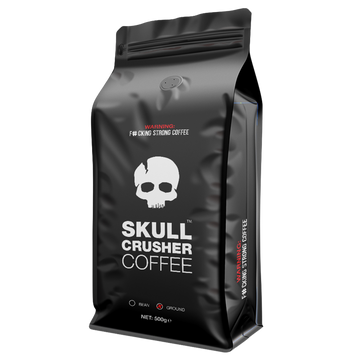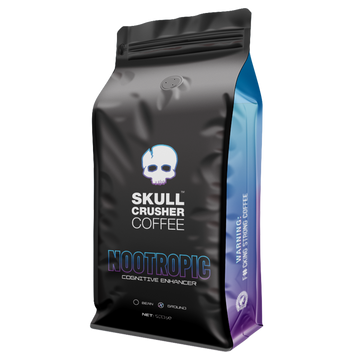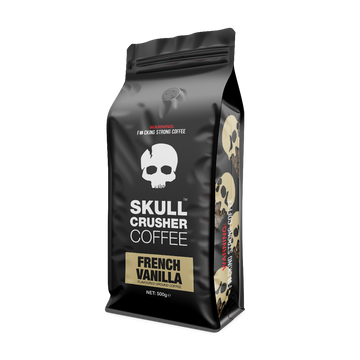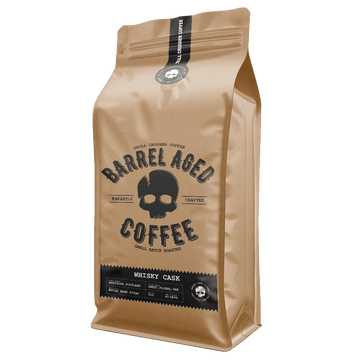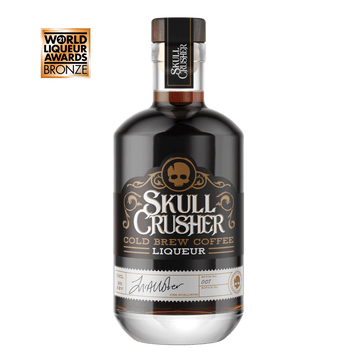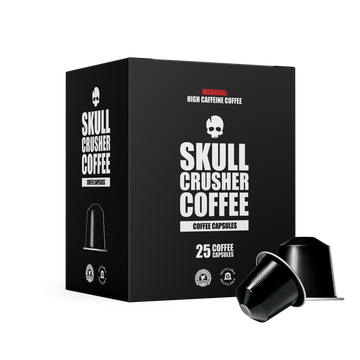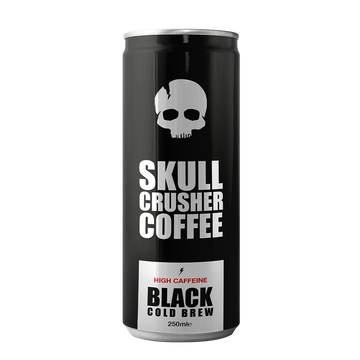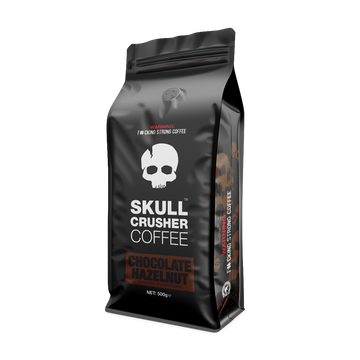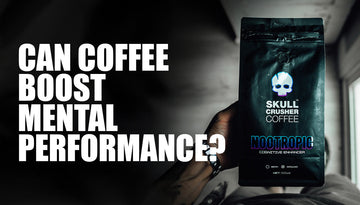Short answer: yes—when the coffee is paired with a targeted nootropic stack. Caffeine lights up alertness by blocking adenosine; selected nootropics then steer that arousal into attention, working memory, and stress-resilient focus through cholinergic, catecholaminergic, and neurotrophic pathways. Below is how that plays out in the brain—and what the strongest studies show.
What “nootropic coffee” does inside your brain
1) Switches on alertness (adenosine antagonism)
Caffeine competes with adenosine at A1/A2A receptors, reducing sleep pressure and increasing cortical excitability—your baseline “on-switch” for vigilance and reaction time.
2) Smooths the signal (caffeine + L-theanine synergy)
L-theanine promotes alpha-band activity (calm, task-ready wakefulness) and, when combined with caffeine, improves attention and accuracy versus placebo or either alone in controlled trials. Expect faster selective attention and steadier mood during demanding tasks.
3) Feeds focus under pressure (L-tyrosine → catecholamines)
L-tyrosine is a precursor to dopamine and norepinephrine. Under stress or cognitive load, supplementation has been shown to preserve working memory and cognitive flexibility, helping you stay on-task when demands spike.
4) Primes learning circuits (Alpha-GPC & Phosphatidylserine → acetylcholine & membrane support)
Alpha-GPC supplies choline for acetylcholine, which is central to attention and rapid information processing. A 2024 randomised, double-blind crossover trial in healthy men found acute improvements on the Stroop after Alpha-GPC versus placebo. Phosphatidylserine supports membrane dynamics and has pilot data for stress-task performance.
5) Supports memory formation (Bacopa monnieri)
Chronic Bacopa (≥12 weeks) is associated with better speed of attention and memory in randomised trials and meta-analysis—useful for learning blocks, study, and complex work.
6) Adds “clear-head” neurotrophic support (Lion’s Mane)
Human trials suggest acute improvements in executive attention and signals for mood/clarity with Hericium erinaceus (Lion’s Mane). Recent RCTs in healthy adults report faster Stroop performance and beneficial trends over 28 days.
7) Keeps arousal productive, not frantic (Ashwagandha)
As an adaptogen, standardised ashwagandha extracts show improved cognitive performance and reduced perceived stress in healthy, stressed adults across randomised, placebo-controlled studies—useful when you need calm intensity.
Why stacking with coffee amplifies results
-
Ignition + traction: Caffeine raises the cortical “gain”; theanine and ashwagandha stabilise that arousal, reducing jitter-driven inefficiency while preserving speed and accuracy.
-
Neurotransmitter supply: Alpha-GPC (acetylcholine) and L-tyrosine (catecholamines) ensure signal availability for attention and working memory when tasks get heavy.
-
Encoding & recall: Bacopa (chronic) and Lion’s Mane (acute/chronic) align with memory and executive function, turning wakefulness into retained output.
Evidence snapshot (selected human studies)
-
Caffeine + L-theanine: RCTs show better attention/accuracy vs placebo and smoother psychophysiology (EEG alpha; improved ERP/P3b in sleep-deprived adults).
-
L-Tyrosine: Review of controlled studies—benefits to working memory/cognitive flexibility under stress.
-
Alpha-GPC: 2024 RCT (healthy men) → faster Stroop and higher total scores vs placebo 60 min post-dose.
-
Bacopa: Meta-analysis of RCTs (≥12 weeks) → improvements in speed of attention & memory.
-
Lion’s Mane: 2023 RCT (healthy adults) → faster Stroop acutely; 2025 crossover trial (healthy adults) explores broader cognitive domains.
-
Ashwagandha: Double-blind RCTs in healthy, stressed adults report better cognitive performance and lower stress with standardised root extract.
How It Works (In Plain English)
Between inbox ambushes and dopamine traps, modern work is a cognitive warzone. Regular coffee gives you short bursts. Nootropic coffee gives you sustained control—alertness, focus, memory, and mood all working together so you can actually finish what you start.
What it is: a fusion of speciality coffee + a targeted nootropic stack (brain-supporting compounds) designed to sharpen attention, support working memory, smooth out jitters, and keep you dialed in longer.
Caffeine flips the “on” switch for alertness. The right nootropics steer that power—supporting neurotransmitters, stress response, and brain signalling—so your energy turns into output, not fidgeting.
The synergy: caffeine = ignition; nootropics = traction + stability.
How to deploy nootropic coffee for real-world performance
-
Timing: 30–60 minutes before deep work, study, strategy sessions, or high-stakes meetings.
-
Cadence: Use daily on focus-heavy days; Bacopa benefits are cumulative (think 8–12+ weeks).
-
Environment: Pair with distraction-proof blocks (90–120 min) to capitalise on the attention window.
The takeaway
Regular coffee wakes you up. Skull Crusher Nootropic Coffee makes you dangerous—clear-headed, composed, and relentless. If you’ve got work worth doing, brew the brainy stuff.
“Nootropic coffee” isn’t a buzzword. It’s neuroscience applied to your morning ritual: caffeine’s adenosine blockade to wake the system, then a curated stack to direct, stabilise, and encode that energy into output. The literature backs meaningful improvements in attention, working memory, stress-resilient focus, and executive throughput—precisely what modern work demands.
FAQs
Will I feel wired?
You’ll feel awake and steady, not scatter-brained. The stack is deliberately built to smooth the ride.
Can I drink it every day?
Yes—most customers make it their daily driver for focus-heavy days.
Is it “mushroom coffee”?
We use Lion’s Mane extract as part of the stack—so you get that clarity kick alongside other nootropics.
How strong is it?
Strong enough to earn the Skull Crusher name—balanced enough to keep your hands on the wheel.

